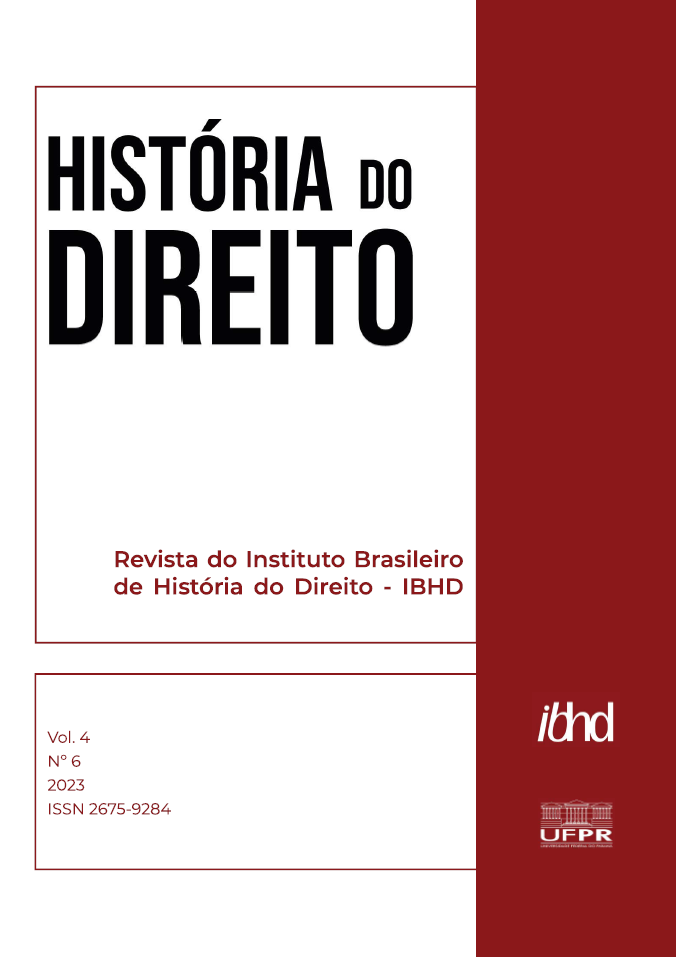An Aristotelian Critique of the Idea of Mixed Constitutions in Polybius
DOI:
https://doi.org/10.5380/hd.v4i6.91008Resumen
The idea of a Constitution of many minds or of many individuals as proposed in modern times, does not differ in kind from the dead end that Polybius sketches in his Constitution. Polybius, the Greek historian of the Hellenistic period (200-118), accepts the idea of a mixed Constitution as seen in Rome, but draws a line between what can be done in political science and what cannot. Hence assigning causes to facts is precarious as the idea of time will remain elusive to humans. And so any interpretative procedure assigning to reality, and to legal reality especially, any definite, once-and-for-all meaning is precarious. Qualifying causality, according to Aristotle, in terms of an uninterrupted time chain is of no help in realising social and political values or pursuing them; thus his views on the forming of a mixed Constitution are negative. Time and only time qualifies cause in Aristotle. His idea of absolute time, however, is not, and cannot be, connected with his idea of “craftsmanship”. To understand even in a material reductionist way and thus to interpret the temporal idea of history, politics and Constitution is our main task; to examine the nature of time is another. These ideas on the nature of the Constitution only respond to an “appalling” challenge in Aristotle’s Work: Why cannot we gain epistemic access to the real essences of Constitutional things and structure? And this is the challenge “par excellence” to be met in order to safeguard the common, public and institutional nature of political and intellectual values.
Descargas
Publicado
Cómo citar
Número
Sección
Licencia
Os autores mantêm os direitos autorais dos artigos publicados nesta revista. Autores têm autorização para publicar seus trabalhos em repositórios institucionais de acesso aberto com reconhecimento da publicação inicial na revista.
A História do Direito: revista do Instituto Brasileiro de História do Direito utiliza a licença Creative Commons - Atribuição 4.0 Internacional (CC BY 4.0), que permite compartilhar e adaptar os trabalhos desde que atribuído o crédito apropriado.



